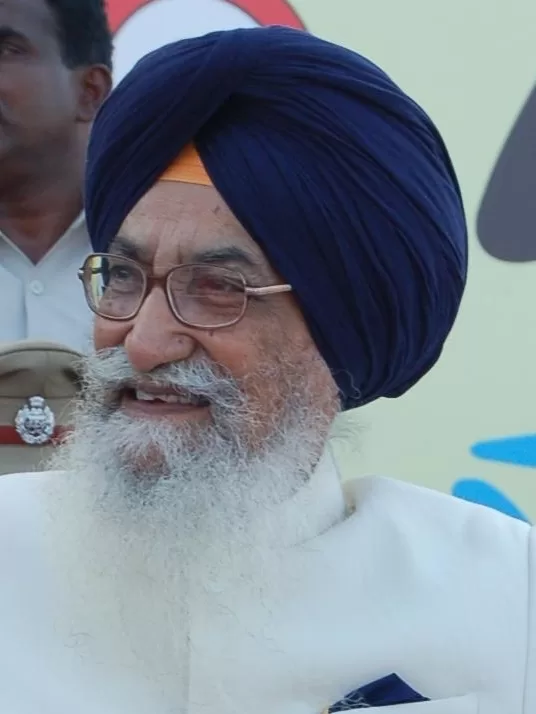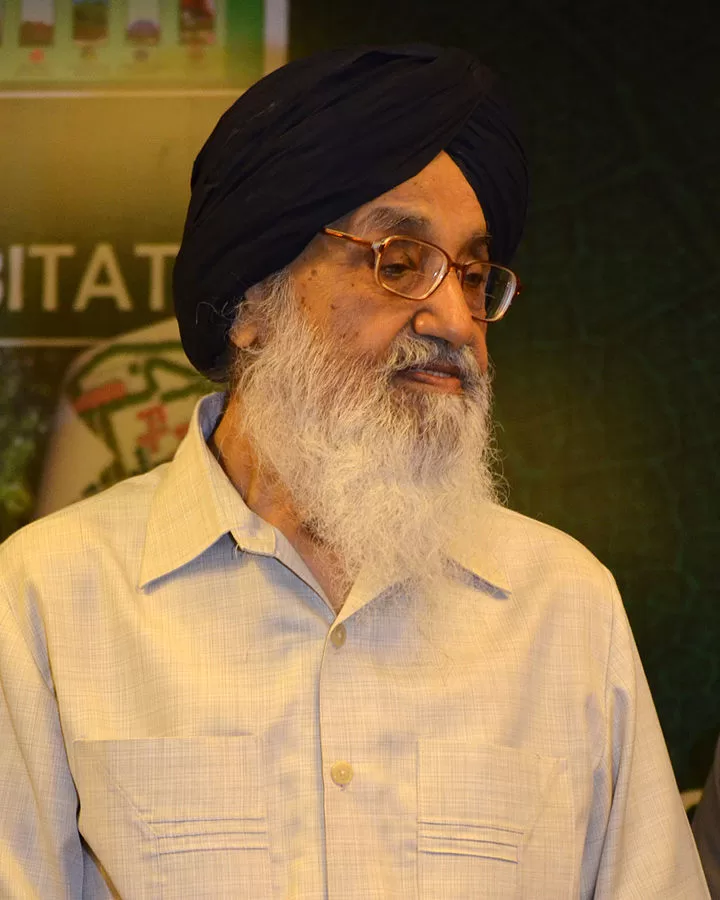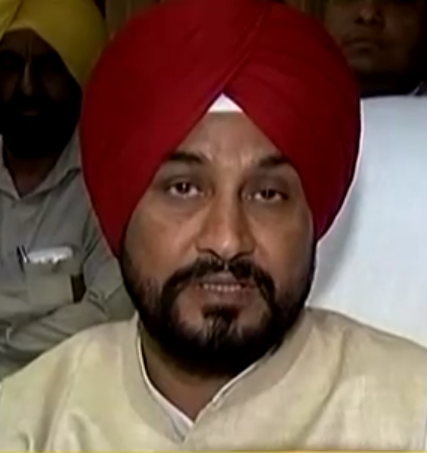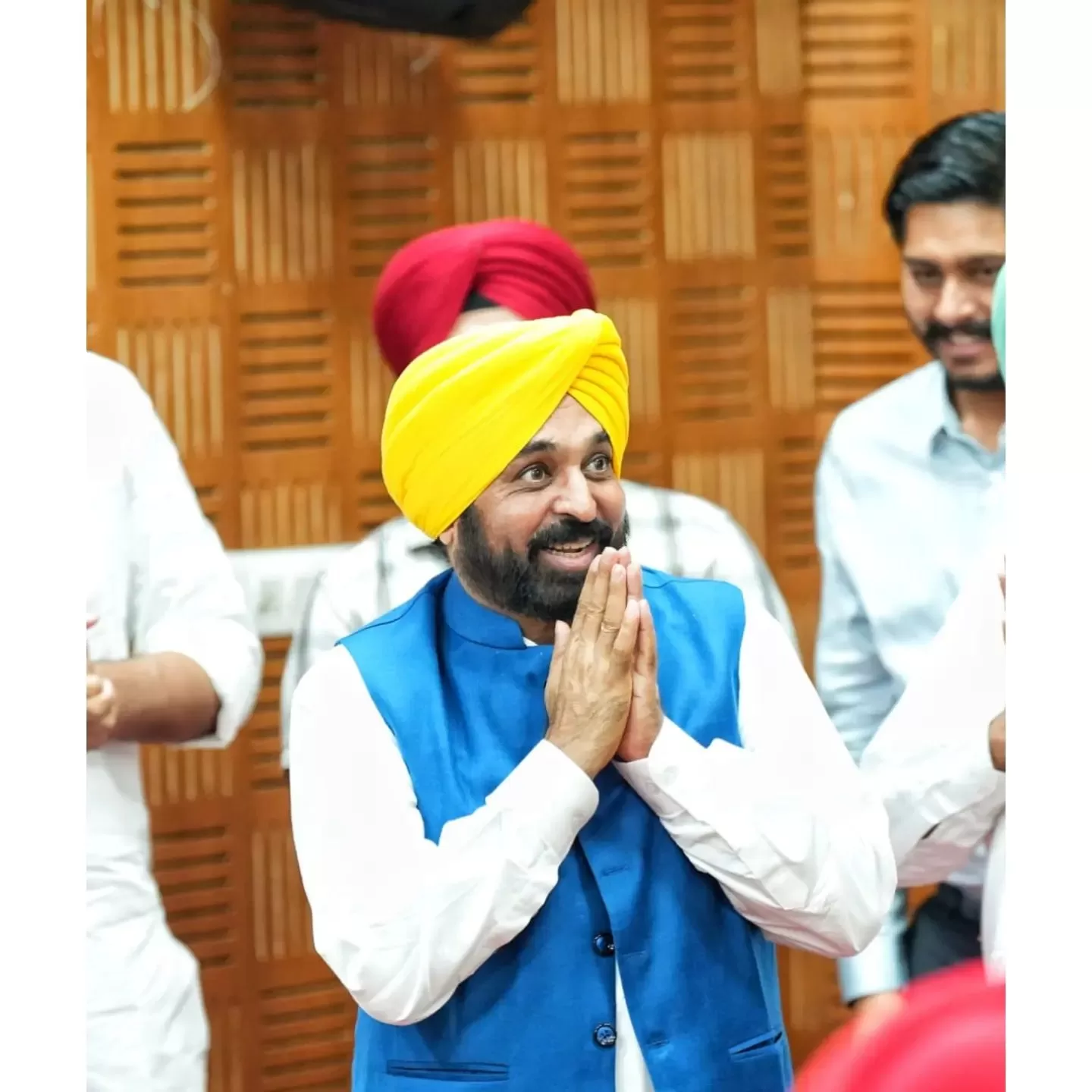Education
Journey of Punjab’s Chief Ministers Since 1947 – A Historical Overview
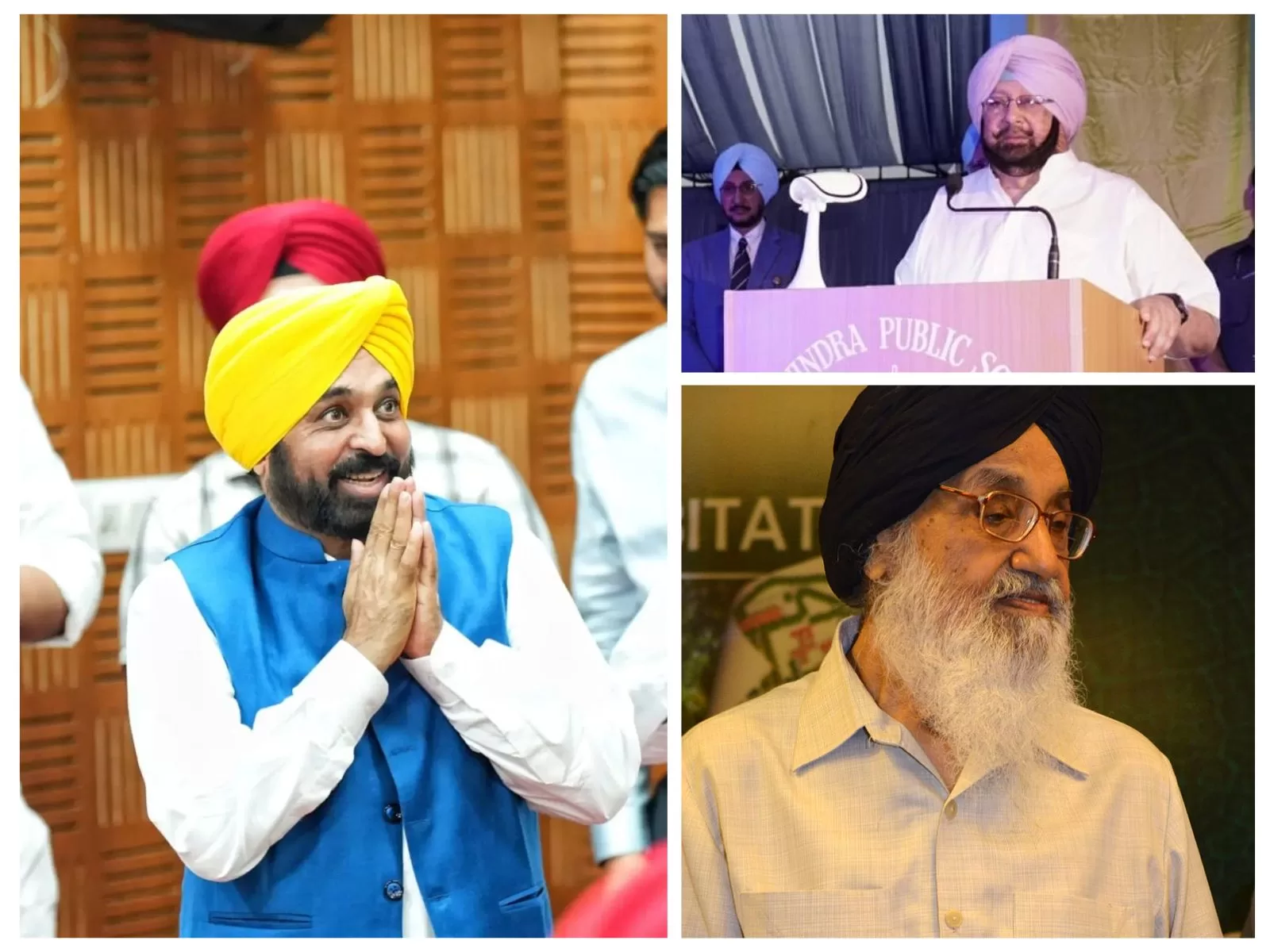
The history of Punjab, a northern Indian state with a rich cultural heritage, is intertwined with the leadership of its chief ministers. Since the year 1947, Punjab has seen a dynamic succession of leaders who have navigated the state through various challenges and opportunities. This article explores the journey of Punjab’s chief ministers, their contributions, and the impact they’ve had on the state’s development.
A Glimpse of Pre-Independence Leadership
Before 1947, Punjab witnessed the leadership of luminaries such as Sir Sikandar Hayat Khan and Sir Khizar Hayat Tiwana, who played pivotal roles in the pre-independence era. Their contributions laid the foundation for the leadership to come.
The Post-Independence Era
1. Genesis of Punjab State and Initial Leadership (1947-1966)
The partition of India in 1947 was a turning point for Punjab. Amidst the challenges of resettlement and rehabilitation, Gopi Chand Bhargava emerged as the first Chief Minister.
His tenure focused on stabilization and healing the wounds of partition. The subsequent years saw leadership transitions as Punjab was reorganized, with leaders like Pratap Singh Kairon contributing to the state’s development.
Furthermore, let us have a detailed discussion about the roles of all four Chief Ministers of Punjab from 1947 to 1966.
Gopi Chand Bhargava
As India gained independence from British rule in 1947, Punjab embarked on a new chapter with Gopi Chand Bhargava as its first chief minister.
Bhargava’s leadership was marked by his emphasis on agrarian reforms and educational advancement. He aimed to uplift the rural population by modernizing agriculture and expanding access to education.
Bhargava’s initiatives laid the groundwork for Punjab’s early development and set the tone for future leaders.
Partap Singh Kairon
The 1960s witnessed the rise of Partap Singh Kairon, a visionary leader who sought to transform Punjab’s economic landscape.
Kairon’s tenure saw a strong push for industrialization and infrastructure development. His policies aimed to modernize agriculture, improve irrigation systems, and boost economic growth. Under Kairon’s guidance, Punjab became a hub for industries, contributing significantly to the state’s prosperity.
Bhim Sen Sachar
Bhim Sen Sachar, during his tenure as the Chief Minister of Punjab, made significant contributions to the state’s development. His leadership was marked by a strong commitment to social justice and welfare programs.
He worked diligently to improve the lives of marginalized communities, promoting education and healthcare accessibility. Sachar’s efforts in infrastructure development and agricultural reforms uplifted Punjab’s economy. Moreover, he aimed to bridge communal divides and maintain harmony among diverse communities.
Bhim Sen Sachar’s tenure stands as a testament to his dedication to the betterment of Punjab and its people, leaving a lasting impact on the state’s progress.
Ram Kishan
Ram Kishan’s tenure as the Chief Minister of Punjab left a lasting impact on the state. His leadership was characterized by a focus on rural development and agricultural growth. He was a well-known face of the freedom struggle just like many freedom fighters of Punjab before Indian independence.
During his tenure as a Chief Minister of Punjab, his dedication to balanced progress and his initiatives for the welfare of Punjab’s residents continue to shape the state’s trajectory positively.
2. The Era of Social and Economic Reforms (1966-1980)
The 1960s marked an era of social and economic reforms in Punjab. Chief Ministers Giani Gurmukh Singh and Gurnam Singh contributed well or the development of the state.
However, Punjab became the cradle of the Green Revolution under the leadership of Chief Minister Lachhman Singh Gill. The agricultural advancements during this period transformed Punjab’s landscape and economy.
The 1970s brought political turbulence to Punjab, with leaders facing the aftermath of the Green Revolution and social unrest. Zail Singh and Darbara Singh took on the mantle of chief ministers during this challenging period. They struggled with economic disparities, regional tensions, and the need for social integration.
Their efforts laid the foundation for addressing complex issues that continued to shape Punjab’s trajectory.
3. Challenges and Transformation (1980-1997)
In the early 1980s, Surjith Singh Barnala briefly held the position of chief minister. His tenure was marked by efforts to promote communal harmony and economic growth. However, the growing wave of Sikh identity politics set the stage for a new era of leadership in Punjab.
This period brought unprecedented challenges in the form of militancy. Chief Ministers such as Surjith Singh Barnala and Beant Singh navigated through these troubled times, working towards restoring peace and stability. The sacrifice of leaders like Beant Singh stands as a testament to their commitment.
Mainly, the 1980s and 1990s were dominated by the rise of Sikh identity politics, and Prakash Singh Badal emerged as a prominent figure in Punjab’s political landscape.
Badal’s leadership focused on safeguarding Sikh interests and advocating for greater autonomy for the state. He championed issues such as the Anandpur Sahib Resolution, aiming to secure the rights and identity of the Sikh community.
The 1990s were a tumultuous period for Punjab due to the rise of militancy. Beant Singh assumed office during this challenging time and took decisive measures to combat terrorism and restore law and order.
His efforts, coupled with those of security forces, played a crucial role in bringing stability back to the region.
4. Towards Modernization and Progress (1997-2023)
In the late 20th century and beyond, Punjab witnessed modernization and progress and the 21st century marked a shift toward economic growth and social welfare.
Chief Ministers like Parkash Singh Badal and Amarinder Singh have focused on economic rejuvenation, infrastructure development, and improving the quality of life for Punjab’s citizens. Their visionary leadership has propelled the state toward a brighter future.
Parkash Singh Badal returned to power, focusing on industrial development and infrastructure. His leadership aimed to bolster Punjab’s economy and create employment opportunities.
On the other hand, Amarinder Singh worked to bridge the gap between rural and urban areas, emphasizing education, healthcare, and social justice.
In recent years, Punjab also witnessed a historic moment with Charanjit Singh Channi becoming the first Dalit Sikh Chief Minister. His appointment highlighted the state’s commitment to inclusivity and representation.
Channi’s leadership focused on addressing the needs of marginalized communities and advancing the cause of social equality.
Punjab’s current Chief Minister is Bhagwant Mann. He is a prominent political figure known for his dynamic leadership. A member of the Aam Aadmi Party (AAP), Mann has brought a fresh perspective to governance.
With a focus on transparency and accountability, he has initiated reforms in various sectors, including healthcare and education. Mann’s grassroots approach has resonated with the people, aiming to address their concerns directly.
He advocates for sustainable development, environmental conservation, and social justice. Bhagwant Mann’s tenure is marked by a commitment to inclusive progress and innovative policies, as he is working towards a brighter future for Punjab since March 2022.
List of Punjab’s Chief Ministers After Independence
| Chief Minister | Party Name | Time Served |
| Gopi Chand Bhargava | Indian National Congress | 15 August 1947 to 13 April 1949 |
| Bhim Sen Sachar | Indian National Congress | 13 April 1949 to 18 October 1949 |
| Gopi Chand Bhargava | Indian National Congress | 18 October 1949 to 20 June 1951 |
| President’s Rule | 20 June 1951 to 17 April 1952 | |
| Bhim Sen Kochar | Indian National Congress | 17 April 1952 to 23 January 1956 |
| Pratap Singh Kairon | Indian National Congress | 23 January 1956 to 21 June 1964 |
| Gopi Chand Bhargava | Indian National Congress | 21 June 1964 to 06 July 1964 |
| Ram Kishan | Indian National Congress | 07 July 1964 to 05 July 1966 |
| President’s Rule | 5 July 1966 to 01 November 1966 | |
| Giani Gurmukh Singh | Indian National Congress | 01 November 1966 to 08 March 1967 |
| Gurnam Singh | Akali Dal – Sant Fateh Singh (BJS -CPI) | 08 March 1967 to 25 November 1967 |
| Lachhman Singh Gill | Punjab Janta Party (INC) | 25 November 1967 to o23 August 1968 |
| President’s Rule | 23 August 1968 to 17 February | |
| Gurnam Singh | SAD-BJS | 17 February 1969 to 27 March 1970 |
| Prakash Singh Badal | Shiromani Akali Dal (BJS) | 27 March 1970 to 14 June 1971 |
| President’s Rule | 14 June 1971 to 17 March 1972 | |
| Zail Singh | Indian National Congress | 17 March 1972 to 30 April 1977 |
| President’s Rule | 30 April 1977 to 20 June 1977 | |
| Parkash Singh Badal | Shiromani Akali Dal (JP-CPI) | 20 June 1977 to 17 February 1980 |
| President’s Rule | 17 February 1980 to 06 June 1980 | |
| Darbara Singh | Indian National Congress | 06 June 1980 to 06 October 1983 |
| President’s Rule | 06 October 1983 to 29 September 1985 | |
| Surjith Singh Barnala | Shiromani Akali Dal | 29 September 1985 to 11 June 1987 |
| President’s Rule | 11 June 1987 to 25 February 1992 | |
| Beant Singh | Indian National Congress | 25 February 1992 to 31 August 1995 |
| Harcharan Singh Brar | Indian National Congress | 31 August 1995 to 21 November 1996 |
| Rajinder Kaur Bhattal | Indian National Congress | 21 November 1996 to 11 February 1997 |
| Parkash Singh Badal | Shiromani Akali Dal (BJP) | 12 February 1997 to 26 February 2002 |
| Captain Amarinder Singh | Indian National Congress | 26 February 2002 to 01 March 2007 |
| Parkash Singh Badal | Shiromani Akali Dal (BJP) | 01 March 2007 to 16 March 2017 |
| Captain Amarinder Singh | Indian National Congress | 16 March 2017 to 18 September 2021 |
| Charanjit Singh Channi | Indian National Congress | 20 September 2021 to 16 March 2022 |
| Bhagwant Mann | Aam Aadmi Party | 16 March 2022 to Present |
The Bottom Line
The history of Punjab’s chief ministers is a testament to the state’s resilience, growth, and evolution. From agrarian reforms to industrialization, from identity politics to social integration, each leader has contributed uniquely to Punjab’s journey.
Their legacies continue to shape the state’s present and future, reminding us of the importance of visionary leadership in shaping the destiny of a region.
Frequently Asked Questions
- Who was Punjab’s first chief minister after independence?
Gopi Chand Bhargava held the distinction of being Punjab’s first chief minister after independence.
- Which chief minister played a key role in industrializing Punjab?
Partap Singh Kairon is renowned for his efforts in industrializing Punjab’s economy.
- Who was the chief minister during the peak of Sikh identity politics?
Prakash Singh Badal emerged as a prominent leader during the era of Sikh identity politics.
- How did Beant Singh contribute to Punjab’s history?
Beant Singh played a crucial role in restoring peace and stability to Punjab during the challenging 1990s.
- Who is the first Dalit Sikh Chief Minister of Punjab?
Charanjit Singh Channi holds the distinction of being the first Dalit Sikh chief minister of Punjab.
Daily News
CAT Exam Analysis Slot 3: Students Face Tough QA Section
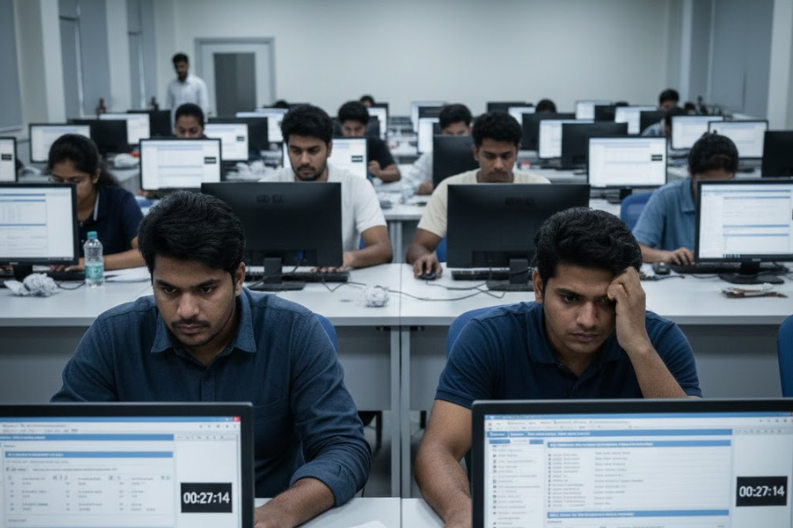
The CAT exam analysis slot 3 reveals that the final session of CAT 2025 proved moderately difficult for most candidates. IIM Kozhikode conducted the Common Admission Test on Sunday, with the third slot running from 4:30 pm to 6:30 pm. Approximately 2.58 lakh students appeared for the exam across all three slots nationwide. Moreover, the overall attendance reached around 86 percent, showing strong participation.
Candidates found the Quantitative Ability (QA) section particularly challenging in the third slot. Experts from Career Launcher noted that QA emerged as the toughest section of the entire day. The section contained 22 questions that required multi-step reasoning under time pressure. Consequently, students estimated that scoring just 5-6 correct answers could secure the 90 percentile mark.
In contrast, the Verbal Ability and Reading Comprehension (VARC) section remained relatively manageable. Students worked through 24 questions in 40 minutes, following the established pattern from previous years. Furthermore, the reading comprehension passages, though occasionally dense, featured straightforward questions. Experts rated this section as easy to moderate, similar to the earlier slots. Additionally, candidates estimated that 8-9 net correct answers would likely place them around the 90 percentile range.
The Data Interpretation and Logical Reasoning (DILR) section presented moderate difficulty throughout the day. This section comprised 22 questions that demanded careful prioritization. Many students highlighted that certain caselets required extended time to solve completely. Therefore, experts suggested that 5-6 solid correct attempts would be sufficient for the 90 percentile. The logical depth and data complexity exceeded expectations for several candidates.
The exam followed the standard structure across all slots. Each session included 68 questions distributed across three sections, with 120 minutes to complete the test. The marking scheme awarded three marks for each correct answer while deducting one mark for incorrect responses. However, unattempted questions carried no penalty, allowing strategic question selection.
Across India, nearly 6,500 candidates appeared for the exam in the tricity region alone. In Mohali, students took the test at two centers located in Sectors 82 and 83. Meanwhile, IIM Sirmaur and IIM Amritsar continue attracting northern region aspirants. Panjab University’s University Business School also remains a preferred choice, with cutoffs expected around the 85 percentile.
Student reactions varied across sections. Himanshi Sharma from PEC Chandigarh shared that the verbal section went smoothly for her. Nevertheless, she found the Math and DI sections tougher than expected. Similarly, Nishant Rathour from Panjab University described the DI section as particularly tricky, though he felt satisfied with his overall performance.
Compared to CAT 2024, this year’s exam showed a slight increase in difficulty. Specifically, DILR emerged as clearly more difficult than last year, while VARC remained marginally easier overall. QA maintained similar difficulty levels but leaned toward the tougher side, especially in the final slot.
CAT 2024 Slot 3 Analysis: कैट एग्जाम स्लॉट 3 एनालिसिस; वीएआरसी कठिन और डीआईएलआर सेक्शन आसान रहा#CAT #CATExam #CAT2024 #CATExam2024
Read more at: https://t.co/IXjsOPQmgk pic.twitter.com/Tc3JnCmero
— Careers360 (@careers360) November 24, 2024
Early estimates suggest that candidates scoring 25-27 net correct answers across all sections in the third slot may reach the 99 percentile. This reflects the overall challenging nature of the session. The results are expected by the end of December, after which shortlisted candidates will proceed to the essay writing and personal interview stages.
The CAT exam analysis slot 3 indicates that smart question selection proved essential for success. Students who managed their time effectively and prioritized accessible questions likely performed better across all sections.
Education
Ludhiana: Guest Faculty Finally Receive 10-Month Salary Arrears
In Ludhiana, a big win for guest faculty members happened recently.
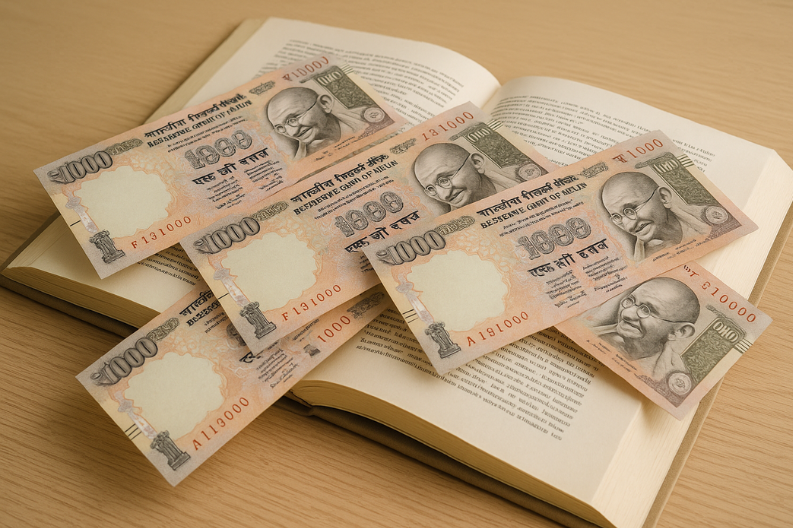
A major relief arrived in Ludhiana after the guest faculty finally receive 10-month salary arrears, bringing joy to hundreds of teachers who had waited almost a year for their pending payments. The Guest Faculty Assistant Professors United Front celebrated this moment and appreciated the government for responding with care and speed.
Leaders of the United Front: Ravinder Singh Mansa, Gursev Singh Patiala, Paramjit Singh, and Muhammad Tanveer, thanked Higher Education Minister Harjot Singh Bains for his quick action. They said his involvement played a key role in clearing the long-pending salaries, which had caused stress for many teachers.
Guest faculty members have supported Punjab’s education system for more than twenty years. They teach in government colleges across the state and continue to guide thousands of students every year. Because of their long contribution, many believe they deserve stronger recognition and fair job security.
In 2022, the Aam Aadmi Party government increased the honorarium for guest professors. This move showed that the state understands its needs and values its service. However, when the government hired permanent professors later, new administrative steps caused delays. As a result, salaries in 25 colleges got stuck, leaving many guest faculty members under financial pressure.
Fortunately, coordinated efforts between the principal secretary and the director of higher education helped end this problem. They removed procedural hurdles and ensured payments finally reached teachers. The United Front also praised the director of higher education for honest and steady leadership during this difficult period.
Teachers across Punjab shared how delays affected their daily lives. Many said they continued teaching with dedication despite financial hardship. Ravinder Singh urged the government to regularize guest faculty services so teachers who served for decades can gain stable positions. He explained that permanent jobs would reflect the true value of their contribution to higher education.
Guest faculty members have shaped the academic journey of countless students. Because of their constant support, many colleges have been able to run smoothly even during staff shortages. Giving them job security would not only help teachers but also improve student learning.
Better treatment of educators leads to better education for everyone. When teachers feel supported, they can focus fully on teaching, guiding, and inspiring young minds. Moreover, regular pay and stable employment help create stronger academic environments.
In conclusion, clearing the pending salary dues marks a positive step for Punjab’s education sector. It shows that the government is willing to listen and respond to teachers’ concerns. Many hope this progress continues, offering more recognition and long-term support, especially after the guest faculty finally receive 10-month salary arrears.
Daily News
What Is an AI Bubble? A Deep, Clear Explanation

Artificial Intelligence (AI) has transformed from a futuristic dream into a booming global industry. Trillion-dollar valuations, skyrocketing chip demand, and rapidly expanding data centers have convinced many that AI will change the world. And in many ways, it will. But beneath the excitement, the rapid pace of investment and financial engineering has raised an important question: Are we living through an AI Bubble?
Just like the dot-com era of 1999 or the US housing bubble of 2008, an “AI Bubble” refers to a dramatic rise in valuations, investments, and expectations-far beyond what real-world fundamentals justify. When these expectations eventually confront reality, the bubble risks bursting.
This article explains what an AI bubble is, how it forms, why it matters, and how investors and industries should view it.
1. Understanding the Core Idea of a Bubble
A “bubble” is an economic condition where asset prices rise sharply because of hype, momentum, and optimism-rather than actual performance and revenue.
In the context of AI:
- Companies are investing heavily in computing power and data centers.
- Investors are pouring money into AI startups at record valuations.
- Tech giants are spending tens of billions on chips, servers, and software.
- Everyone assumes that AI will soon generate massive profits.
A bubble forms when expectations grow much faster than actual, sustainable earnings.
In other words:
A bubble is created when we assume infinite growth based on finite evidence.
2. Why AI Is Attracting Trillions of Dollars
Before calling it a bubble, we must understand why this technology attracts so much money.
AI promises:
- Faster automation
- Better productivity
- New business models
- Breakthroughs in medicine, education, finance, robotics, and more
- Massive time and cost savings for enterprises
Global companies do not want to miss out on a technological shift that could determine the next generation of winners in the economy.
There’s nothing wrong with this. Innovation requires investment.
The issue begins when these investments turn speculative, detached from realistic outcomes.
3. What Creates an AI Bubble?
a. Exponential Investment vs. Slow Monetization
AI models (LLMs, diffusion models, robotics brains) need:
- Immense GPU power
- Large data centers
- Cheap electricity
- High-bandwidth networking
- Engineering teams
- Safety teams
- Product teams
Yet, despite billions spent, AI revenue is still small. Except for a few giants like Google and Microsoft, most companies haven’t found a profitable business model.
If expenses rise faster than revenue, valuations can become artificially inflated.
b. Circular Financing
In a healthy economy, money flows like this:
Investor → Company → Revenue → Profit
But in bubbles, the flow becomes circular:
Investor → Company A → Company B → Company A
Example pattern:
Company A invests in Company B → Company B uses the funds to buy Company A’s products → Company A’s revenue goes up → valuation goes up → investors put more money.
It creates an illusion of demand-when in reality, the cash keeps cycling inside the same loop.
c. Hidden Debt and Financial Engineering
Some companies don’t want to show massive AI-related debt on their balance sheets. So they create:
- SPVs (Special Purpose Vehicles)
- Leasing structures
- Off-balance-sheet borrowing
- Vendor financing arrangements
This makes their main company appear financially healthy, even when huge risks are quietly accumulating elsewhere.
This is similar to the 2008 housing bubble, where mortgage risks were hidden inside complex derivatives.
d. GPU and Data Center Mania
An AI model isn’t just software-it lives inside expensive data centers packed with GPUs. The cost of building these facilities has exploded.
But here is the issue:
- GPUs depreciate quickly
- New generations release faster than before
- The hardware becomes obsolete
- Data center rental rates fluctuate
- Electricity and cooling costs rise
- AI demand is not guaranteed
If the business model does not justify massive capex, the investment becomes risky.
4. Fake Demand and Overreaction to Geopolitics
AI chips also became expensive because geopolitics created artificial scarcity. Restrictions on selling high-end chips to countries like China created a “shortage premium.” Companies started hoarding chips, not because they needed them immediately, but out of fear of missing out.
This artificial demand can collapse quickly once supply stabilizes.
5. AI Hype Across Non-Tech Industries
In the dot-com era, every company rushed to add “.com” to their name.
Today, something similar is happening:
- AI toothbrush
- AI washing machine
- AI refrigerator
- AI hair dryer
- AI fan
- AI cooker
- AI helmet
- AI vacuum cleaner
Most of these “AI-enabled” products do not provide any meaningful intelligence. But companies do this to attract investor money and media attention.
When hype becomes a strategy, a bubble is already forming.
6. Historical Parallels: How Bubbles Usually Work
Dot-Com Bubble (2000):
- Companies grew without revenue
- IPOs doubled on listing day
- “Internet will change everything”
- But most firms had no profits
- Bubble burst when investors demanded real cashflows
Housing Bubble (2008):
- Excessive borrowing
- Hidden risks
- Overconfidence that prices will always rise
- Collapse triggered a global recession
AI Bubble Today:
- Massive capex
- Hidden debt
- Unrealistic expectations
- Companies using AI tag for hype
- Concern that revenue may not catch up soon
7. Is AI Itself a Bubble? Absolutely Not.
Artificial intelligence is real. It is transformative, and it’s here to stay.
But the financial ecosystem around AI may be inflated.
The internet survived the 2000 crash.
Housing still exists after 2008.
But the companies built on unrealistic promises disappeared.
Similarly, AI will remain essential for the next 50+ years-but many AI businesses may not survive the financial correction.
8. When Can an AI Bubble Burst?
Predicting exact timing is impossible.
But bubbles usually burst when:
- interest rates rise
- profitability lags
- capital becomes expensive
- debt accumulates
- growth expectations fail
- competitive pressure increases
- investors look for safer opportunities
If companies cannot turn today’s multi-billion-dollar investments into sustainable revenues, correction becomes inevitable.
9. What Happens If the AI Bubble Bursts?
Short-term impact:
- Stock market correction
- Valuations of AI startups collapse
- GPU and data center prices drop
- Over-leveraged firms face bankruptcy
- Investors lose money on speculative bets
- Hiring slows across tech sectors
Long-term positive impact:
- Weak, overhyped companies disappear
- Strong products survive
- Innovation becomes more disciplined
- Infrastructure becomes cheaper
- AI becomes more accessible
- Industry stabilizes
- Real business models mature
Bubbles clean the ecosystem and leave behind only what truly works.
10. Will AI Still Grow After a Bubble? Yes-Even Faster.
A bubble does not destroy technology. It only destroys bad investments.
After the dot-com crash, the internet entered its golden period.
>After the crypto crashes, blockchain matured and became more regulated.
>After solar energy crashes, renewable companies finally became profitable.
AI will follow the same pattern:
Temporary hype → Bubble → Correction → Sustainable long-term growth
Final Thoughts
An AI Bubble forms when optimism outpaces logic, financial engineering hides risk, and everyone assumes growth will continue forever. But AI itself is not the bubble. The bubble is the money, debt, valuation, and expectation built around the technology.
AI will change the world. But the journey may include a financial reset-one that separates hype from real innovation.
True revolutions don’t collapse after a bubble.
They only get stronger.
-

 Entertainment3 years ago
Entertainment3 years agoTop 15 Punjabi Models – Male and Female List
-

 City Guide3 years ago
City Guide3 years ago3B2 Mohali Market Shops: Discover 44 Hidden Gems
-

 Entertainment3 years ago
Entertainment3 years agoTop 11 Punjabi Comedians of All Time
-

 Jobs4 years ago
Jobs4 years agoTop 20 IT Companies in Mohali
-

 Food4 years ago
Food4 years ago11 Best Restaurants in Mohali You Must Visit
-

 Food3 years ago
Food3 years agoTop 15 Cafes in Mohali you must visit
-

 Property2 years ago
Property2 years agoWho Lives In Homeland Mohali: Punjabi Celebrities, Business People…
-

 Education2 years ago
Education2 years ago10 Famous Punjabi Writers With A Great Impact On The Literary World

